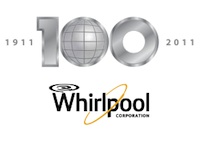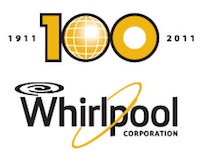“In 1999, the chairman Richard Withwam called me into his office, and asked me for a new growth strategy based on innovation. His idea was clear, because he believed that this should reach everyone and every type of work.” Nancy Tennant travels the world, telling the story of the most radical change of a company.
“At the time, it was thought that innovation was the work of the few, and the intuition of our chairman appeared unprecedented. But it was the best, winning idea. We began with a team of 75 people, 25 in America, 25 in Comerio and 25 in San Paolo. We put them all together, with a new way of working. At the time, there was a sea of white in the shops, with electrical appliances all the same. I thought that, by bringing these people together, we would find the solution, but we understood this wasn’t enough.”
Since then, Whirlpool has come a long way, and is one of the companies that focuses most on innovation. Nancy Tennant continues, “For us, innovation must have three requisites. It must be unique and significant. It must create a real and competitive advantage, and lastly, it must be so new that the consumer is willing to pay something extra to have that product. The perception of what innovation is has changed over the last few years. We’re proud to have changed the rules of the game; the crisis distracted us a little, but we have to start working even more in that direction.”
Nancy happily talks about when the chairman Richard Withwam retired, he declared that he would only give his name for Brandywine Creek, the Whirlpool lodge, where we are staying, because he was convinced of the need for the continuous training and development of the employees.
Coming back to the innovation that is so dear to the corporation, the question now is how to step up a grade. “We realized we were all talking the same language, but interpreting differently. So we decided to introduce concepts, sharing and applying them in all regions. Another important point, given the new markets, is that innovation must not be expensive. It can be conceived and realized also for the masses, with low technology materials, introducing entry level products that enable a part of the population, who would never be able to purchase some products, acquire them. This innovation needs the same inventiveness and skill, and is possibly even more difficult.”
In short, processes that are not only revolutionary, like the iPod, but also small, incremental changes, that do not change people’s lives, but improve the product.
“We attach importance to the innovation of process and of product, and we use the same instruments and people that are in charge of developing it.”
It is a central theme for the economy and the life of companies that would require days of work. Here, you have to run, but you won’t have an evening with Nancy Tennant every day.



